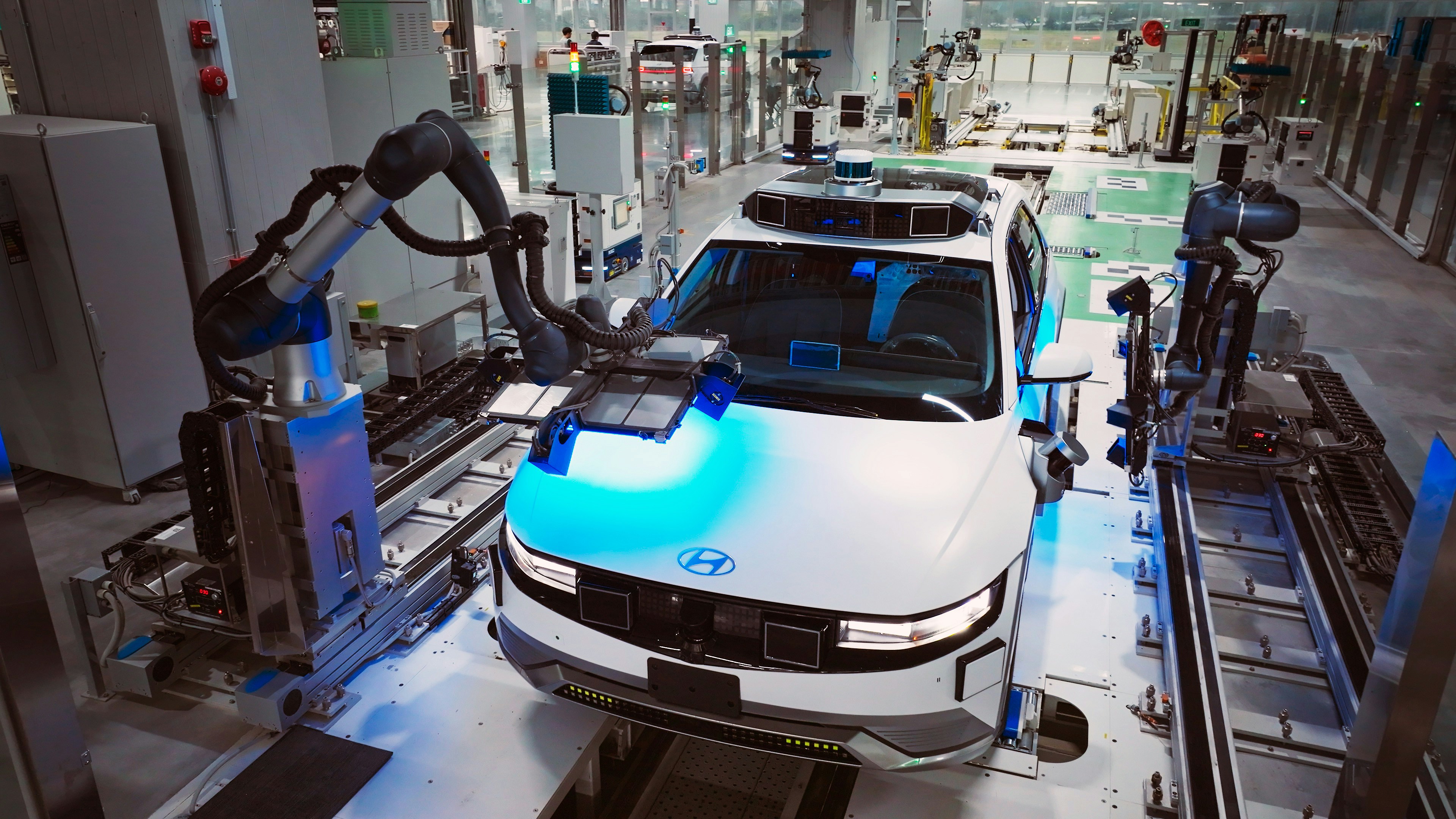
Overview of the Current Employment Landscape in the Automotive Industry
The automotive industry in the United States plays a crucial role in the economy, employing millions and serving as a barometer for broader economic trends. As of 2025, approximately 1.5 million people are directly employed in the automotive manufacturing sector, with additional roles in the supply chain, sales, and vehicle servicing. Amid evolving technologies and market demands, the landscape of automotive employment is undergoing significant changes.
Currently, the industry is witnessing a notable shift toward electric vehicles (EVs) and autonomous driving technologies. This transition is reshaping employment opportunities, with increased demand for highly skilled workers in areas such as software development, engineering, and battery production. Jobs in traditional manufacturing have also evolved, as automation and robotics are becoming more prevalent on production lines, thereby requiring workers to have a more advanced level of technical proficiency. In fact, it isprojected that by 2030, up to 20% of current automotive jobs could require new skills as manufacturers adapt to these technological advancements.
Another significant trend affecting employment is the changing consumer preference toward sustainability. This shift is prompting automotive companies to adjust their product offerings and business strategies. Consequently, occupations related to research and development, particularly in green technologies and sustainable materials, are on the rise. Furthermore, the service sector of the industry is evolving, as dealerships and repair shops are increasingly focused on maintenance of electric and hybrid vehicles, which necessitates specialized training for technicians.
Overall, the current employment landscape in the US automotive industry is characterized by a dynamic interplay between traditional roles and emerging job oportunities driven by innovation and changing consumer behavior. Understanding these shifts is vital for stakeholders as they navigate the future terrain of this pivotal industry.
Impact of Electric Vehicles and Sustainability on Job Opportunities
The automotive industry is undergoing a significant transformation as electric vehicles (EVs) gain traction and sustainability initiatives become paramount. This shift represents not only an evolution of the products being manufactured but also a fundamental change in the skills required within the workforce. As concerns about climate change and fossil fuel dependency rise, the automotive sector is responding by increasing investments in EV technology, which are anticipated to drive new job opportunities in various domains.
One of the most pronounced areas of growth is in EV manufacturing. As traditional combustion engine vehicles transition to electric power, companies are expanding operations to accommodate the production of EVs. This includes roles not only in assembly but also in areas such as design and enginering, where innovative solutions are necessary to enhance vehicle performance and efficiency. Additionally, battery technology has emerged as a critical field within the auto industry, necessitating skilled labor for tasks ranging from research and development to production and recycling of batteries.
The integration of renewable energy sources into the automotive manufacturing process further emphasizes the call for new skills. Workers will be required to understand how to incorporate solar and wind energy in production facilities, promoting a greener manufacturing approach. In response to these changes, educational institutions and training programs are adapting to equip individuals with the necessary competencies. Reskilling initiatives will play a crucial role in supporting the existing workforce as they transition to these new sectors. This could include training in advanced manufacturing processes, energy management, and sustainable practices, thus ensuring that workers can meet the demands of this evolving job market.
Overall, the growth of electric vehicles and sustainability initiatives is reshaping the landscape of the automotive industry, creating a myriad of job opportunities while necessitating a shift in skill sets to meet the needs of a more environmentally responsible future.
The Role of Automation and Artificial Intelligence in Shaping Employment
The advent of automation and artificial intelligence (AI) is fundamentally transforming the landscape of the automotive industry, leading to significant implications for employment. As manufacturers increasingly integrate technology into production processes, certain types of jobs are becoming increasingly susceptible to automation. Roles that involve repetitive tasks, such as assembly line work, vehicle inspection, and basic quality assurance, are at a higher risk of being replaced by advanced roboticsand AI systems. These technologies enhance efficiency and precision, ultimately reducing labor costs for companies. However, this shift poses challenges for the workforce, particularly for those employed in roles that are most vulnerable to automation.
Conversely, automation and AI are also creating new job opportunities within the sector. Roles that demand higher levels of technical expertise and skills—such as robotics engineers, AI specialists, data analysts, and cyber-physical system managers—are becoming more prevalent. Additionally, the growing focus on electric vehicles (EVs) and autonomous driving technologies necessitates the development of specialized skills in these areas. Consequently, the automotive workforce must adapt to these changes by acquiring new competencies and embracing continuous learning to remain relevant in an evolving job market.
Moreover, the implications of these advancements extend beyond job displacement and creation; they foster a paradigm shift in job security and workforce adaptability. Employees will need to prioritize skills development, engaging in training programs to enhance their technical capabilities. Companies are increasingly investing in upskilling initiatives to help current employees transition into new roles that leverage technology. As the automotive industry continues to evolve with automation and AI, collaboration between employers, educational institutions, and government entities will be vital in ensuring a smooth transition for the workforce and maintaining economic stability in this sector.
Future Trends and Predictions for the Employment Market in the Automotive Sector
The US automotive industry is poised for significant transformation over the next decade, with employment opportunities projected to shift due to various influential factors. As innovation accelerates, particularly in electric and autonomous vehicles, the demand for skilled labor will increase. Jobs related to the design, production, and maintenance of these advanced vehicles are expected to see substantial growth, thereby contributing to a more robust job market. Industry experts foresee a notable rise in positions that require expertise in software development, data analysis, and engineering, illustrating a trend towards a more tech-oriented workforce.
Changing consumer preferences will also play a crucial role in shaping the employment landscape. As consumers become more environmentally conscious, the automotive industry is pivoting towards sustainable practices. This shift will necessitate the hiring of professionals who specialize in green technologies and sustainable production methods. Furthermore, the evolution of mobility solutions, such as ride-sharing and micro-mobility services, will likely create new roles focused on customer experience and service innovation within the automotive sector.
Government policies will significantly influence the future of employment in the automotive industry as well. Investments in infrastructure, such as electric vehicle charging networks and smart transportation systems, will create jobs not only in construction but also in maintкnance and operations. Additionally, government incentives aimed at fostering technological advancement will spur manufacturers to invest in their workforce, leading to enhanced training and development programs. This focus on upskilling and reskilling will be pivotal in cultivating a diverse and capable workforce ready to meet the complexities of a rapidly evolving industry.
In summary, the future of employment in the US automotive industry appears promising, supported by innovations, evolving consumer behaviors, and strategic governmental initiatives. By aligning workforce development with these trends, stakeholders can ensure that the automotive sector remains competitive and sustainable in the years to come.



